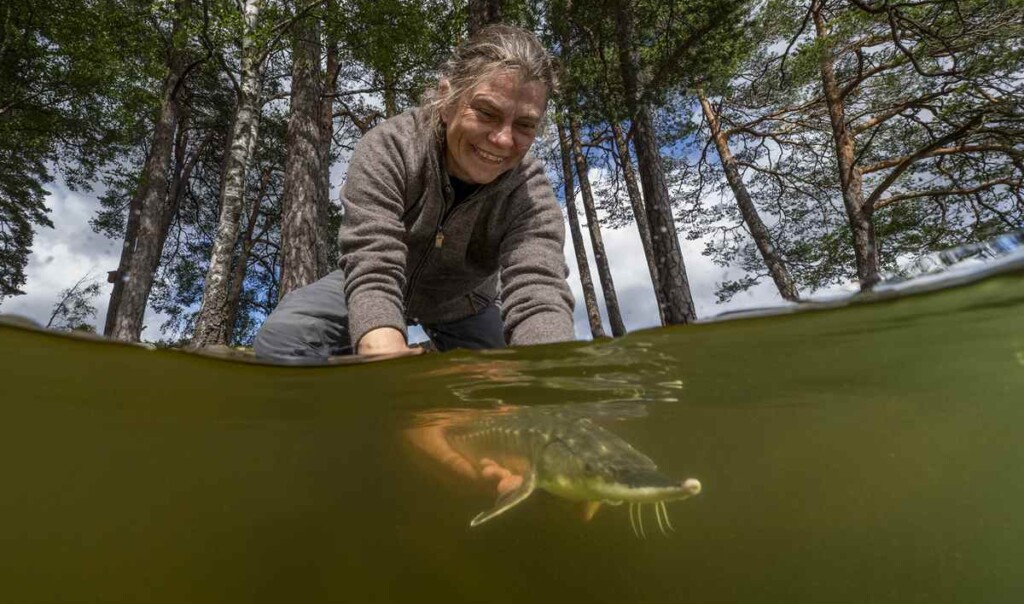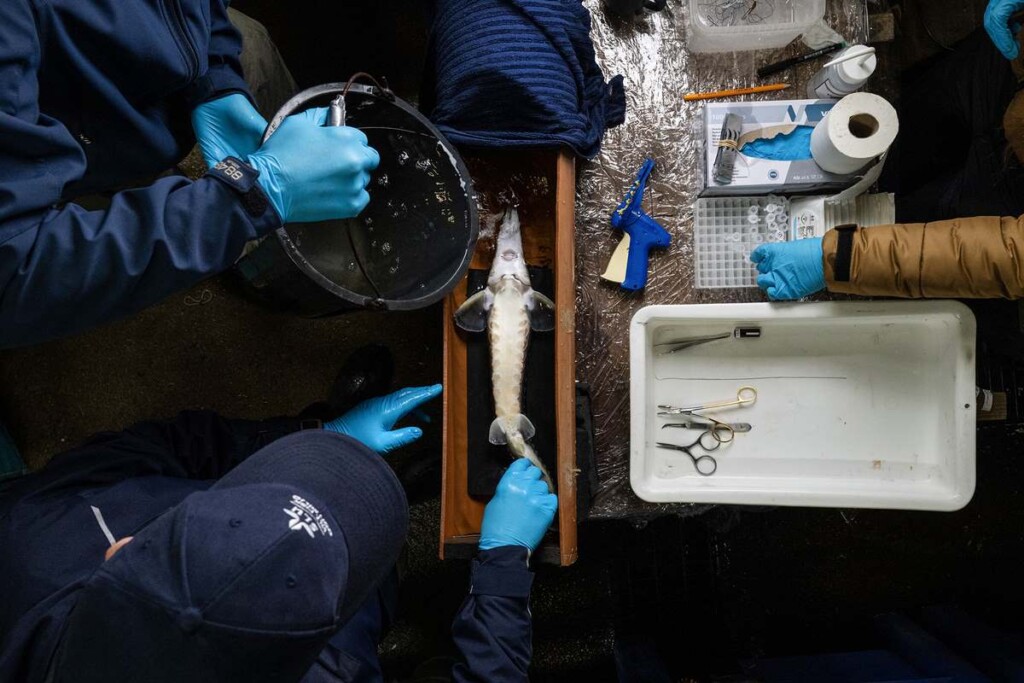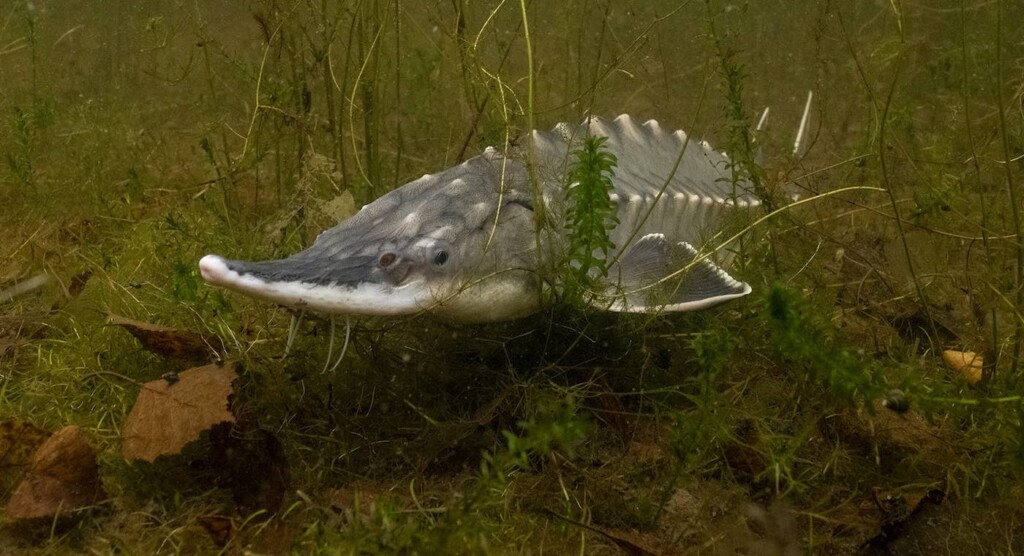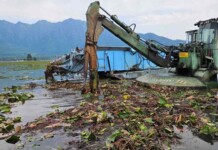
The mighty sturgeon has been reintroduced in Sweden where it was driven to extinction in the early 20th century.
The Atlantic sturgeon is now back in the River Göta following years of measures to improve the water quality and habitat as well as financial support from a variety of groups and institutions.
The Return of the Sturgeon initiative, managed by the Swedish Anglers Association, was able to fulfill its mission recently of releasing 100 captive-bred juvenile Atlantic sturgeon into the Göta.
The juveniles were reared in a breeding facility in the village of Born auf dem Darß, on Germany’s Baltic Sea coast which was just one of the initiative’s German partners. They were released into the Göta near Bohus Fortress, in the city of Kungälv.
“This is a unique and incredibly exciting event,” says project leader Linnéa Jägrud, who is overseeing the Return of the Sturgeon initiative. “The reintroduction of a regionally extinct species is very uncommon in Sweden. I’m looking forward to the day when we can look at the river and say ‘there are Atlantic sturgeon spawning below the surface here’.”
Much like salmon, sturgeon spawn and grow up in rivers before migrating to saltwater habitat like estuaries and the eventually the sea in adulthood. It’s expected the sturgeon will eventually make for the Göta Estuary, but not before they develop the necessary salt tolerance to survive in ocean water.

The 100 released fish were fitted with GPS tracking tags so scientists can monitor their movements, including where they go when they make it to the ocean, and where they choose to return in order to spawn.
Rewilding Europe supported the initiative with a generous €42,000 grant.
STURGEONS SURVIVING: Endangered Sturgeon–A Fish Once So Popular a King Declared Them ‘Royal’–Making a Comeback in UK
The organization wrote that surgeons are both keystone and indicator species that are essential to a river reaching its most robust levels of biodiversity. They use their narrow, tapered heads to forage for insect larvae and crustaceans while naturally disturbing riverbeds, enhancing oxygenation, moving organic matter along waterways, and creating spawning grounds for smaller fish, in the process.

Rewilding Europe also states they act as hosts for species such as lampreys and freshwater pearl mussels, and eat invasive species that would otherwise disrupt natural food webs. They depend on an interlinked network of habitats that provide them with suitable conditions for feeding, migrating, and spawning, and are sensitive to changes in water temperature, oxygen levels, and other environmental factors.
MORE EUROPEAN RIVERS: The Long-Lost ‘Legend’ Leopard Fish Found Again in Turkey’s Rivers Confirming the Stories from Locals
“The sturgeon can become a symbol for the overall health of the Göta River,” Jägrud told the organization. “It will be an ecological ambassador for the river.”
Jägrud added that she would like to see a situation whereby several hundred individuals are released in the Göta every year due to Atlantic sturgeon pups having a high mortality rate in nature.
FISH SPECIES RETURNING: Once Biologically Dead, the River Mersey in England is “Best Environmental Story in Europe”
“The ideal scenario would be to establish a rearing facility here in Sweden. This would increase the chances of the sturgeon returning here to breed. We want them to feel that the Göta is their home,” she said.
SHARE The Inspiring Return Of This Eons-Old Fish To Scandinavia…




















